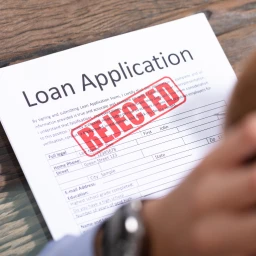How to Pledge Shares? What are its Benefits?

Pledging shares is a process by which investors can use their shares as collateral for a loan. This can be beneficial for investors because it allows them to access capital without having to sell their shares. Pledging shares can also help investors meet margin requirements or other obligations. This article will help you understand more about how to pledge shares and how it helps investors!
What is meant by Pledge of Shares?
Pledging of shares is a process whereby the shareholder offers his/her shares as collateral to secure a loan. The loan can be availed for various personal or business purposes. In case of non-payment of the loan, the pledged shares can be sold by the lender to recover the loan amount.

What are pledged shares?
Pledged shares are shares of a company’s stock that have been pledged as collateral for a loan. This can be done by either the company itself or by individual shareholders. Pledging shares allows companies to raise capital without having to dilute their equity or take on debt, and it can also provide investors with a way to secure loans against their investments.
There are a few things to keep in mind if you’re considering pledging shares. First, pledged shares cannot be sold or transferred without the lender’s consent. Second, if the value of the shares falls below the loan amount, the shareholder may be required to provide additional collateral. Finally, if the company goes bankrupt, shareholders who have pledged their shares may lose them entirely.
Despite these risks, pledging shares can be a useful tool for both companies and investors. For companies, it can be a way to raise capital without giving up equity or taking on debt. For investors, it can provide access to financing at a lower cost than borrowing from a bank.
Can pledged shares be sold?
If you have pledged shares, you may be able to sell them. However, it is important to check with the company or individual that you pledged the shares to see if they have any restrictions on selling the shares. If you are able to sell the shares, this can be a good way to raise money for yourself or your business.
Can pledged shares be unpledged?
Yes, pledged shares can be unpledged. This is typically done if the shares have increased in value and the shareholder wants to cash in on the increase. The process of unpledging shares is relatively simple and can be done through most brokerages.
What are the benefits of pledging shares?
When individuals pledge shares, it can be beneficial for investors in many ways. Firstly, it provides them with additional financial resources which can be used for various investment opportunities. Secondly, it helps in diversifying the portfolio and reduces the concentration risk. Thirdly, it provides liquidity in case of emergency need of funds.
Pledging shares is a way for investors to get involved in a company without actually owning any shares. By pledging shares, investors are essentially betting on the success of the company and its stock price. If the stock price goes up, the investor makes money. If the stock price goes down, the investor loses money.
Pledging shares can be a risky investment, but it can also be a way to make a lot of money if the stock price goes up. For example, if an investor pledges $1,000 worth of shares and the stock price goes up by 10%, the investor would make $100.
Some investors choose to pledge shares because they believe in the long-term potential of the company and its stock price. Others choose to pledge shares because they think it will help them make a quick profit.
Regardless of the reason, pledging shares can be a risky but potentially profitable investment for investors.









